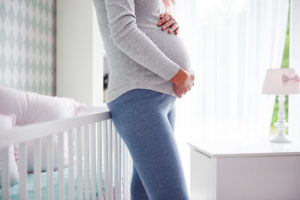About 10% of women and teens of childbearing age have iron deficiency in developed countries. Pregnancy exacerbates the risk of iron deficiency since maternal iron needs are increased. Iron deficiency can lead to anemia, which is associated with poor outcomes for both the mother and newborn—preterm delivery, RBC transfusions, low birth weight, and long-term developmental issues. In order to help clinicians more easily diagnose and treat iron deficiency and anemia, researchers at a large Canadian hospital developed an iron deficiency toolkit including educational information for both clinicians and patients, treatment algorithms, templates for lab tests, and standardized prescription forms. By comparing electronic patient records pre- and post-intervention from a total of 17,636 pregnant and postpartum women, the researchers found that 10-fold more women were screened for serum ferritin levels, and the risk of prenatal hemoglobin values less than 100 g/L was lower in the post-intervention period (p<0.0001). Furthermore, the proportion of women who received a RBC transfusion during pregnancy or 8 weeks postpartum decreased from 1.2% (181/15,019) to 0.8% (20/2,617) post-intervention (p=0.02). Low-tech iron deficiency toolkits were useful for detecting iron deficiency and anemia in pregnant women and reducing transfusions.
Show Comments
Comments on this article are closed.

